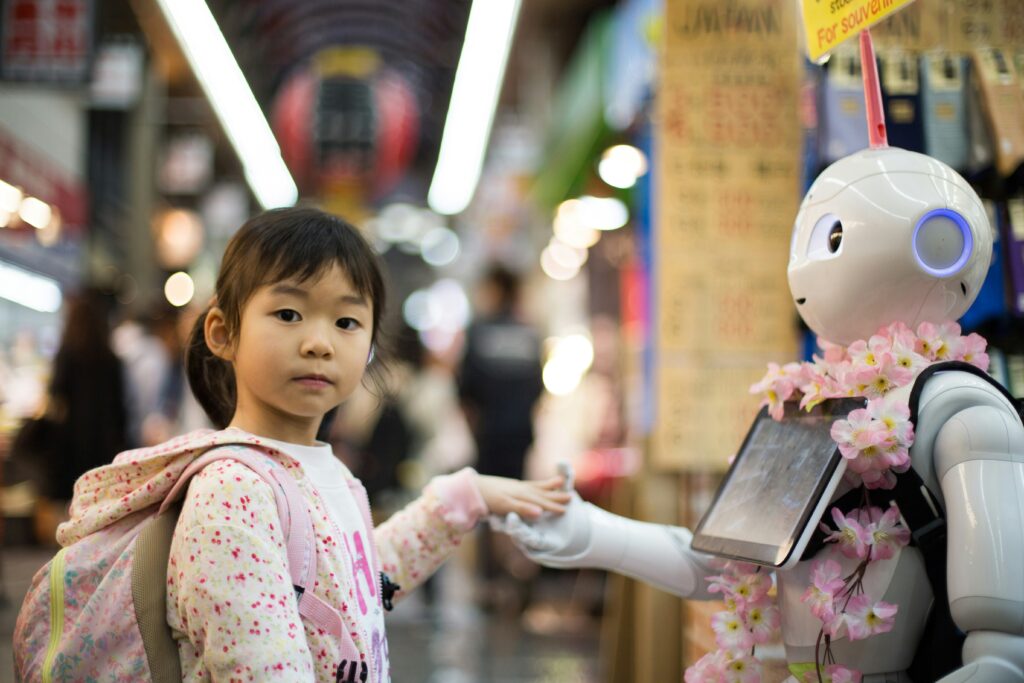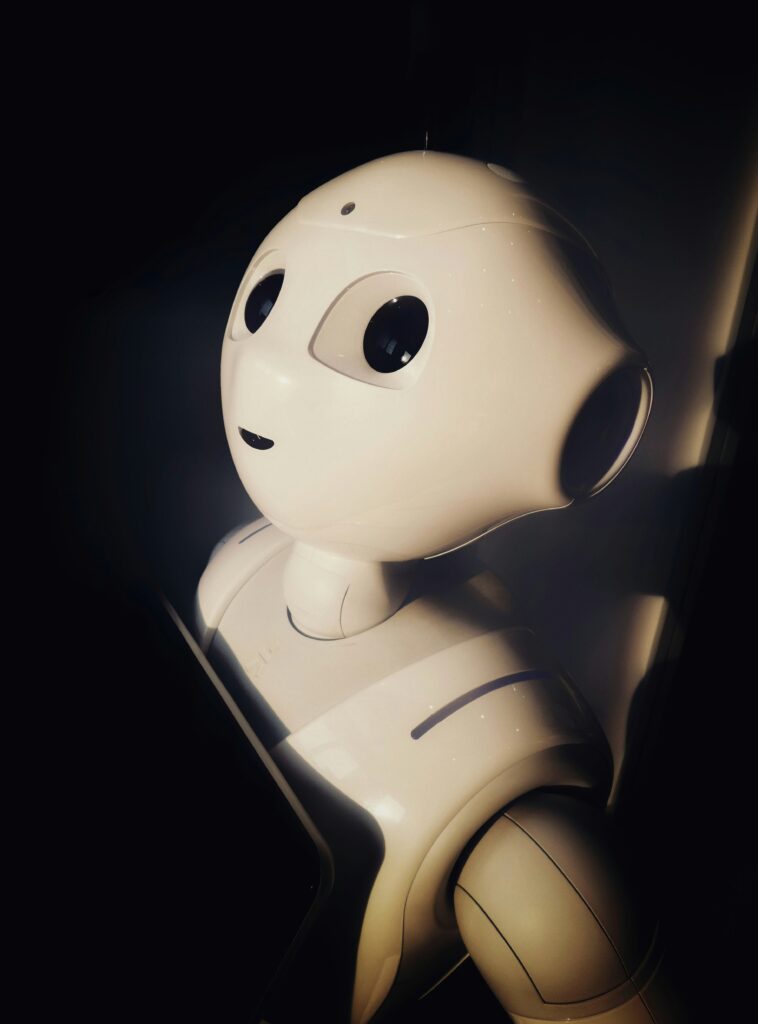Rise Of The Ai
I’m excited to share with you the compelling journey of artificial intelligence and its astonishing ascent in the modern world. From its early inception to its current status as an indispensable companion in our daily lives, the rise of AI stands as a testament to human ingenuity and technological prowess. This article explores how AI has evolved to become a powerful force, rewriting the rules in fields ranging from healthcare to entertainment and beyond, and provocatively speculates on what the future may hold as AI continues to advance and integrate into the very fabric of society. Join me in unraveling the narrative of this remarkable evolution and its profound implications on our world.

Defining Artificial Intelligence (AI)
AI: The Basics
When I talk about Artificial Intelligence, or AI for short, I’m referring to the simulation of human intelligence processes by machines, especially computers. These processes include learning, reasoning, and self-correction. What’s fascinating about AI is its ability to receive data, process it, and make a decision or take an action that maximizes the chance of successfully achieving a specific goal.
The Evolution of AI: A Historical Perspective
The journey of AI began in the mid-20th century, with pioneers like Alan Turing and John McCarthy, who laid the foundational stones for this transformative field. Over the decades, AI has evolved from simple pattern recognition software to complex algorithms capable of learning and adapting. Progress in this field has ebbed and flowed, with periods of high expectations followed by “AI winters” where progress stalled. Nonetheless, the evolution of AI has been relentless, driven by greater computational power and the explosion of data.
Categories of AI: Narrow, General, and Superintelligence
AI can be broadly classified into three categories. Narrow AI is focused on performing a single task very well and exists all around us today in the form of voice assistants, recommendation systems, and more. General AI, which is still theoretical, refers to systems that possess the ability to understand, learn, and apply knowledge in a way that’s indistinguishable from human intelligence. Superintelligence is a hypothetical AI that surpasses human intelligence across all fields; it’s a concept that excites and terrifies in equal measure and raises questions about our very existence.
AI’s Impact on the Economy
Job Automation and the Changing Workforce
It’s no secret that AI is automating jobs, from factory work to customer service roles. This evolution is reshaping the workforce, as tasks that were once the province of humans are increasingly being taken over by efficient algorithms. But it’s not all doom and gloom. I see this as a transition that, while challenging, could lead to more fulfilling work for people as mundane tasks are offloaded to machines.
AI and Productivity: Creating New Economic Opportunities
Beyond job automation, AI is a true productivity booster. It allows companies to operate more efficiently and at larger scales, which can lead to new economic opportunities – think precision agriculture, where AI helps farmers optimize yields and reduce resource use, or how AI-driven analysis can unlock insights from data that were previously inaccessible.
Challenges for Regulatory and Economic Policies
However, the rise of AI also presents significant challenges for regulatory and economic policies. How do we ensure fair competition in an AI-driven market? How is labor value redefined in the face of automation? These are tough questions that we, as a society, need to address through thoughtful policy-making to ensure that the gains from AI are equitably distributed.
AI in Technological Advancements
Revolutionizing Computing Power and Capabilities
AI is revolutionizing computing power and capabilities by demanding and inspiring new kinds of hardware. This includes specialized processors designed to accelerate AI tasks, highly parallel architectures, and innovations in energy efficiency.
AI in Robotics: Automation and Efficiency
In robotics, AI is the brain that brings machines to life. It enables robots to perceive their environment, make decisions, and carry out tasks with precision and efficiency. This automation isn’t just about doing things faster; it’s about expanding what’s possible, whether on factory floors or in remote explorations.
The Role of AI in Advancing Quantum Computing
The complexity of quantum computing is mind-boggling, but AI might just be the key to unlocking its potential. AI algorithms are uniquely suited to managing the nuances of quantum information processing, and the synergy between AI and quantum computing could lead to unprecedented capabilities.
Ethical Considerations in AI
Bias and Fairness in AI Systems
As AI systems become more pervasive, I’m acutely aware of the issues surrounding bias and fairness. AI is only as good as the data it’s trained on, and if that data reflects historical biases, those prejudices can be perpetuated. Striving for bias-free AI isn’t just a technical challenge; it’s a moral imperative.
AI and Privacy: Navigating Data Protection
Privacy is a cornerstone of trust in any technology, and AI is no exception. I believe that as we navigate the implementation of AI, we must ensure robust data protection practices. People need assurance that their data isn’t being misused, and that requires transparency and accountability from entities that deploy AI systems.
Regulating AI: Ethical Frameworks and Guidelines
Regulating AI isn’t straightforward, but it’s necessary. We need ethical frameworks and guidelines that hold AI developers and users accountable. This means clear standards for AI development, deployment, and monitoring, so that AI works for the benefit of all and not just a select few.

AI in Everyday Life
Smart Home Devices and Personal Assistants
In my home, AI comes to life through smart devices and personal assistants. It’s incredibly convenient to control lighting, play music, or get updates on the weather with a simple voice command. This seamless integration of AI into my daily routine underscores how natural and unobtrusive this technology can become.
AI in Entertainment: From Gaming to Movie Production
In the world of entertainment, AI is transforming everything from gaming, with non-player characters that can adapt and respond to my actions, to movie production, where AI can assist in everything from script analysis to visual effects.
Healthcare and AI: From Diagnostics to Treatment
One of the areas where I’m most excited about the role of AI is in healthcare. From improving diagnostic accuracy to personalizing treatment plans, AI has the potential to make healthcare more effective and accessible. It’s a prime example of how AI can support and enhance human expertise.
AI’s Role in Transportation
The Road to Autonomous Vehicles
The concept of self-driving cars once felt like pure science fiction, but AI is making it a reality. The road to autonomous vehicles is paved with complex AI algorithms that can navigate, make split-second decisions, and learn from countless miles of driving data.
AI in Traffic Management and Urban Planning
But AI’s role in transportation isn’t limited to the vehicles themselves; it extends to traffic management and urban planning. AI can optimize traffic flows, reducing congestion and emissions. It’s a win-win for cities looking to become more sustainable and for me when I’m trying to get around town efficiently.
Drones and AI: Transforming Delivery and Transportation Systems
AI also takes to the skies with drones. Whether it’s for delivering packages or conducting surveillance, drones powered by AI are becoming a critical component of modern transportation systems, enabling services that were once costly or even impossible.

AI in Business and Industry
Transforming Supply Chain with AI
AI is a game-changer for supply chain management. It can predict demand, optimize routing, and manage inventory with precision. This transformation is not only economically beneficial but it also creates more resilient supply chains – a fact that’s become all too important in recent years.
AI’s Role in Decision-making and Business Strategy
From crunching numbers to predicting market trends, AI is becoming an indispensable tool in decision-making and business strategy. It helps me to sift through reams of data to identify patterns or insights that would be impossible for a human brain to discern alone.
AI-Powered Marketing: Personalization at Scale
Marketing is another field ripe for AI’s influence. Personalization at scale is the holy grail of marketing, and AI makes it achievable. It’s amazing how algorithms can tailor messages and offerings to individual preferences, significantly increasing engagement rates and driving growth.
AI and the Future of Work
Reskilling the Workforce for an AI World
As AI assumes roles in various tasks, the need for reskilling the workforce becomes evident. I’m a firm believer in the potential for people to learn and adapt, and I see possibilities for new kinds of jobs that complement AI, focusing on human strengths like creativity and interpersonal skills.
The Future of Workplaces with AI Integration
The workplaces of the future will be integrated with AI in myriad ways. It’s exciting to think of the collaboration between human and artificial intelligence, enhancing productivity and unleashing innovative potential in fields from architecture to zymology.
Human-AI Collaboration: Enhancing Productivity
This collaboration between humans and AI will not only enhance productivity but also creativity. I envision a symbiotic relationship where AI handles the routine, allowing humans to focus on the strategic and creative dimensions of work.
Global AI Race and Geopolitical Implications
Competition for AI Supremacy
The race for AI supremacy is a competition among nations that could define the economic and military balance of power in the 21st century. This race is about innovation, talent, and access to data, and the stakes couldn’t be higher.
AI as a Tool for National Security
Nations are also starting to view AI as a tool for national security, which brings with it a host of ethical concerns. There’s a delicate balance between leveraging AI for protection and the potential for misuse or escalation of conflicts.
International Collaboration vs. AI Proliferation
While competition is intense, I believe there’s also room for international collaboration to prevent AI proliferation and ensure that AI advancements are governed by a consensus on ethical standards. Such collaboration is essential for addressing global challenges and avoiding a dangerous arms race.
The Future of AI
Predictions and Speculations
As for predictions and speculations, they run the gamut from the utopian to the apocalyptic. AI has the potential to solve some of the most pressing problems facing our world, from climate change to disease. However, as with any powerful tool, there’s a need for caution. The future of AI is undeniably bright, but it’s also unwritten, a canvas on which we must all determine how best to apply this extraordinary technology.
AI’s Potential for Solving Global Challenges
I’m inspired by AI’s potential to tackle global challenges. Absolutely, there are significant hurdles, but I’m optimistic that with thoughtful and collaborative approaches, AI can be harnessed to create a better world.
Setting Realistic Expectations for the Future of AI
It’s also important to set realistic expectations for AI’s future. While it’s easy to get caught up in the hype, the truth is that AI is a tool—a powerful one, but a tool nonetheless. It’s up to us to wield it wisely, considering the broader societal impacts and ensuring that the rise of the AI leads to outcomes that benefit all of humanity.







